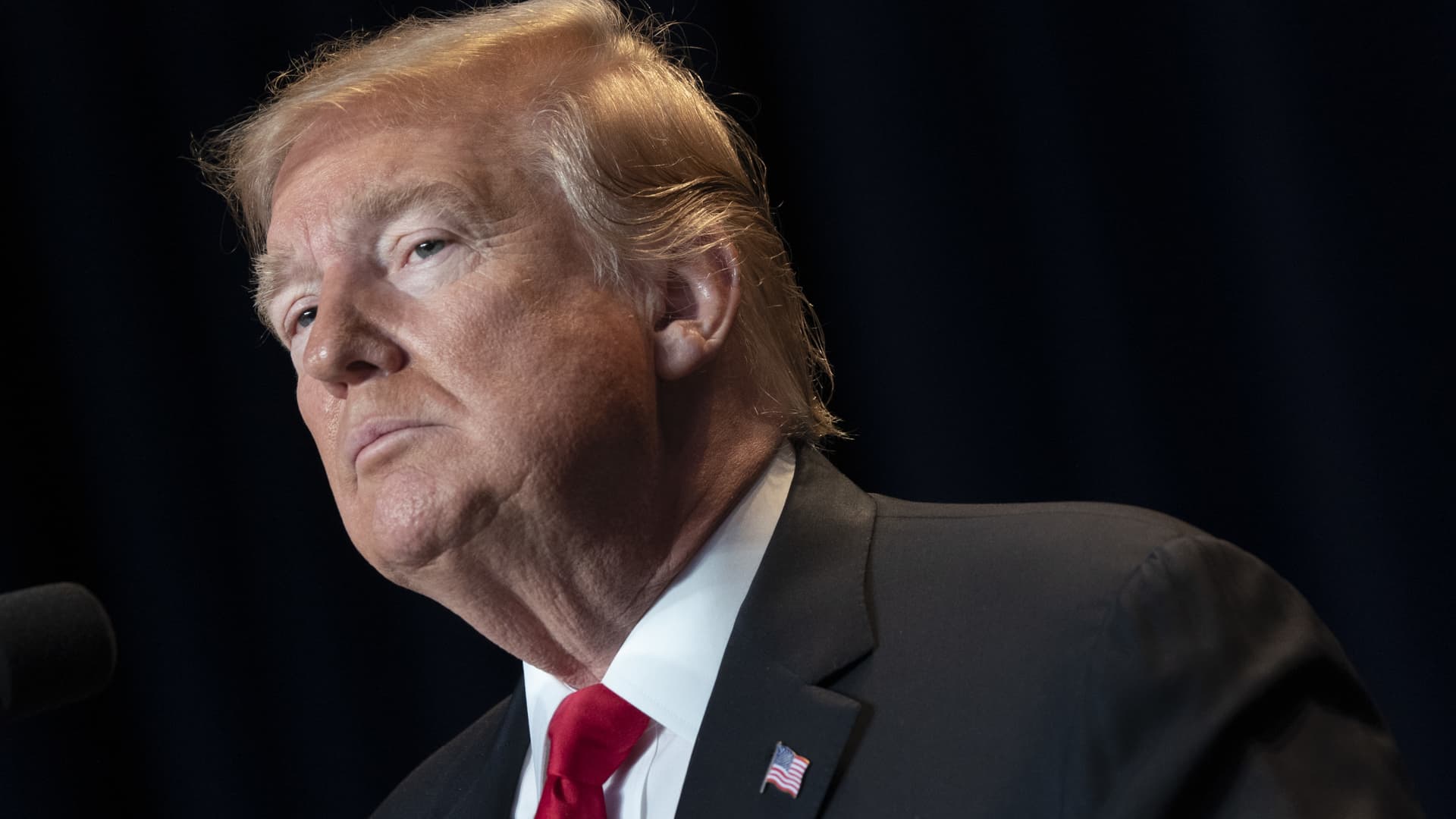Security contractor Zachary Young alleges CNN defamed him in a November 2021 report, shown above, about Afghans’ fears of exorbitant charges from people offering to get them out of the country after the Taliban took control of Afghanistan. CNN says it will defend the report in a trial set to start in a Florida court Monday.
CNN via Internet Archive/Screenshot by NPR
hide caption
toggle caption
CNN via Internet Archive/Screenshot by NPR
A Florida jury has found that CNN defamed a security consultant in presenting a story that suggested he was charging “exorbitant prices” to evacuate people desperate to get out of Afghanistan after the U.S. withdrawal in August 2021.
Jurors found the network should pay $5 million to U.S. Navy veteran Zachary Young for lost finances and suffering, and said he was eligible for more in punitive damages. The proceedings turned immediately to expert testimony as both sides presented cases over what punitive damages would be appropriate.
Young sat impassively as the jury’s verdict was read aloud in court.
The November 2021 story focused on concerns from Afghans that they faced extraordinary costs in a “black market” to secure safe passage for relatives and friends, especially those who had worked with U.S. agencies and organizations and therefore were fearful of the takeover by the Taliban.
Young was the only security contractor named in the piece, however, and a caption warned he offered “no guarantee of safety or success.”
He was not directly accused of operating in a black market in the television or written versions of the story, but the words did appear in the caption in the TV version of the story.
On the witness stand during the trial, CNN editors defended use of the term “black market,” saying it meant operating in unregulated circumstances, such as the chaos of Kabul at that time; Young’s lawyers noted that dictionaries consistently ascribe illegality to the term.
The jury found CNN liable for defamation per se, meaning it had harmed Young by the very words it chose, and for defamation by implication, that is, it had harmed his reputation by the implications that a reasonable reader or viewer might take from the story.
Young’s lead attorney, Devin Freedman, had argued that CNN willfully damaged Young, costing him millions of dollars and causing irreparable personal harm, and that the network should be punished for it. Toward the very end of his closing arguments, Freedman told the jury they had the rare opportunity to hold the press accountable.
“Media executives around the country are sitting by the phones to see what you do,” Freedman told jurors. “CNN’s executives are waiting in their boardrooms in Georgia to see what you decide. Make the phones ring in Georgia. Send a message.”
After the initial verdict, Judge William S. Henry instructed jurors that they could only find punitive damages against CNN for its actions in the case at hand, not over any other story or issue.
Even so, over the course of the lawsuit, lawyers for Zachary Young acquired internal correspondence showing several editors within CNN held reservations about the solidity of the reporting behind the story.
For example, Fuzz Hogan, a senior director of standards for CNN, acknowledged in testimony under oath that he had approved a “three-quarters true” story. Another editor, Tom Lumley, had said in an internal message that the piece was “80 percent emotion.” On the stand, Lumley said that it still wasn’t his favorite story, but on the grounds of the craft of story-telling involved.
During the trial, CNN’s lawyers had contended the story’s reporting holds up as fair and true under scrutiny. CNN correspondent Alexander Marquardt had presented viewers with a LinkedIn message from Young saying it would cost $75,000 to evacuate a vehicle with five or six passengers from Kabul to Pakistan. Young said he worked with corporate sponsors, including Bloomberg and Audible, rather than individuals.
On the stand, Young acknowledged that he took a 65% profit margin from the fees he charged, and took inquiries from individuals. He also curtly and coarsely brushed off people inquiring about help who could not afford his fees.
Other groups involving U.S. veterans and non-governmental organizations sought to get Afghans out without such profits, as a former major general testifying on Young’s behalf acknowledged. The retired major general, James V. Young Jr. (not related to Zach Young), said he charged donors for the cost.
CNN’s legal team, led by David Axelrod (the lawyer is not related to the Obama White House official and CNN analyst of the same name) had told jurors they should rely on their own “common sense.”
Axelrod had been able to press Young to concede that some of his claims to potential clients were not borne out by facts; Young had not in fact evacuated people from Afghanistan by air. Nor was he in constant contact with journalists, as claimed.
In his closing argument, Freedman presented Young as a swashbuckling former CIA operative to explain his curtness in messages to desperate people trying to help people.
On the witness stand, however, Young emerged as emotionally vulnerable himself, weeping during testimony. He recounted that, after the story ran, he became despondent, depressed, alienated from intimacy with his wife, cut off from friends and family members. HIs attorney cited “deep and lasting wounds” from the piece.
The piece was presented initially on CNN’s The Lead With Jake Tapper, and a fuller written version subsequently posted on CNN’s website. A few months later, shortly after Young’s legal team threatened legal actions, a substitute anchor apologized to Young on the air for use of the term “black market” in the story, and said it did not apply to him.
Freedman, Young’s attorney, called the apology insufficient.
“This is what makes this case historic: punitive damages,” Freedman told jurors. “A media company has to face an American jury with the power to punish. That is not a frequent event. Do you believe that CNN should be punished? Do you believe they should send a message to other media companies to avoid this misconduct?”
This story will be updated after the jury decides on what, if any, punitive damages to award Young.


























/cdn.vox-cdn.com/uploads/chorus_asset/file/25822586/STK169_ZUCKERBERG_MAGA_STKS491_CVIRGINIA_A.jpg)

/cdn.vox-cdn.com/uploads/chorus_asset/file/25821992/videoframe_720397.png)



/cdn.vox-cdn.com/uploads/chorus_asset/file/23935558/acastro_STK103__01.jpg)
